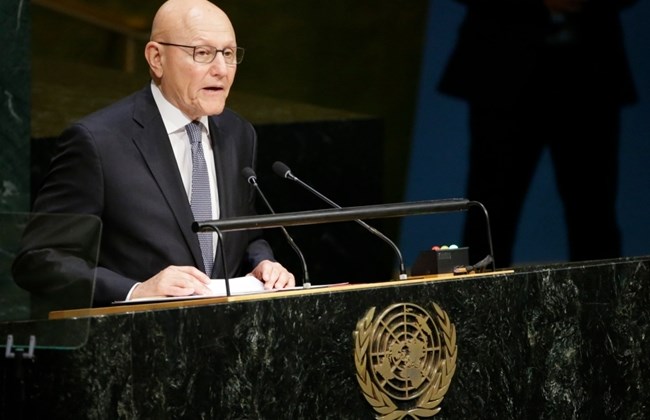
Gulf News,
Manama: Lebanon’s cabinet has distanced itself from statements by Hassan Nasrallah, the Secretary General of Hezbollah, that Bahrain condemned as blatant interference in its domestic affairs.
Prime Minister, Tammam Salam, stressed on “Lebanon’s commitment to better bilateral relations with Bahrain, and all states in the Gulf Cooperation Council”, adding that “Lebanon’s official position on foreign relations is expressed by the government alone, and not by any political party, even if said party is a cabinet member.”
“Our brothers in the Kingdom of Bahrain are aware of the Lebanese system and its political complications,” Salam said on Sunday, quoted by Lebanon’s National News Agency (NNA).
“Lebanon, which has for long suffered from foreign meddling in its internal affairs, is against any interference in the affairs of other states, including Bahrain,” Salam said.
On Saturday, Bahrain’s foreign ministry had summoned the Lebanese charge d’affaires to protest against statements by Nasrallah.
Undersecretary Abdullah Abdul Lateef Abdullah said that the recent statements by Nasrallah were “a blatant interference in the internal affairs of the Kingdom of Bahrain and a clear infringement on its sovereignty and independence”.
Nasrallah’s statements gave a flawed and biased portrayal of the situation in Bahrain and were aimed at damaging relations between brothers, the undersecretary said after the foreign ministry summoned the Charge d’affaires of Lebanon Ebrahim Elias Assaf and presented him an official memorandum of protest.
“The undersecretary called on the Republic of Lebanon to take prompt deterrent legal actions and decisive measures about such remarks that are harmful to the relations between the two countries and the two brotherly peoples, and ensure the immediate and unequivocal cessation of all forms of interference in Bahrain’s internal affairs especially since the terrorist party is a partner in the Lebanese government,” the foreign ministry said, Bahrain News Agency (BNA) reported.
Abdul Lateef stressed that Bahrain would take all necessary steps to protect its interests, preserve its security and stability and ensure the safety of its people.
Bahrain’s foreign ministry on Saturday also summoned the Charge d’affaires of Iran, Mohammad Reda Babae, to protest against statements by Iran’s Supreme Leader Ali Khamenei.
On Wednesday, Khamenei said “the painful events in Iraq, Syria, Yemen, Bahrain, the West Bank and Gaza as well as in other countries in Asia and Africa are tragedies for the Islamic nation that we must address.”
However, Bahrain voiced “strong condemnation and rejection of these statements, which are an unacceptable interference in its internal affairs and a violation of the principles of the United Nations as they adversely affect the security and stability of the region and the nature of relations between its countries”.
“The “Ministry of Foreign Affairs Undersecretary Ambassador Abdullah Abdul Lateef Abdullah has stressed the need for full compliance with the principles of good neighbourliness, non-interference in the internal affairs of the kingdom and the respect of its sovereignty and independence. He also emphasised the need to put an immediate end to such irresponsible statements and other forms of interference in Bahraini affairs, and instead pay attention to the Iranian people and work to improve their conditions rather than create unjustified problems with neighbouring countries,” the ministry said in a statement carried by BNA.
In July, Bahrain had summoned the Iranian acting charge d’affaires and handed him an official protest memorandum following statements by Khamenei against the kingdom.
That protest was lodged after Khamenei gave a sermon on Eid Al Fitr during which he said Iran would never stop supporting its friends in the region and the “oppressed” people of Palestine, Yemen, Syria, Iraq, Bahrain and Lebanon.
However, Manama rejected the statement as “a flagrant and unacceptable interference in Bahrain’s internal affairs, a blatant encroachment on its sovereignty and independence and a violation of the UN and Organisation of Islamic Cooperation [OIC] principles.”



